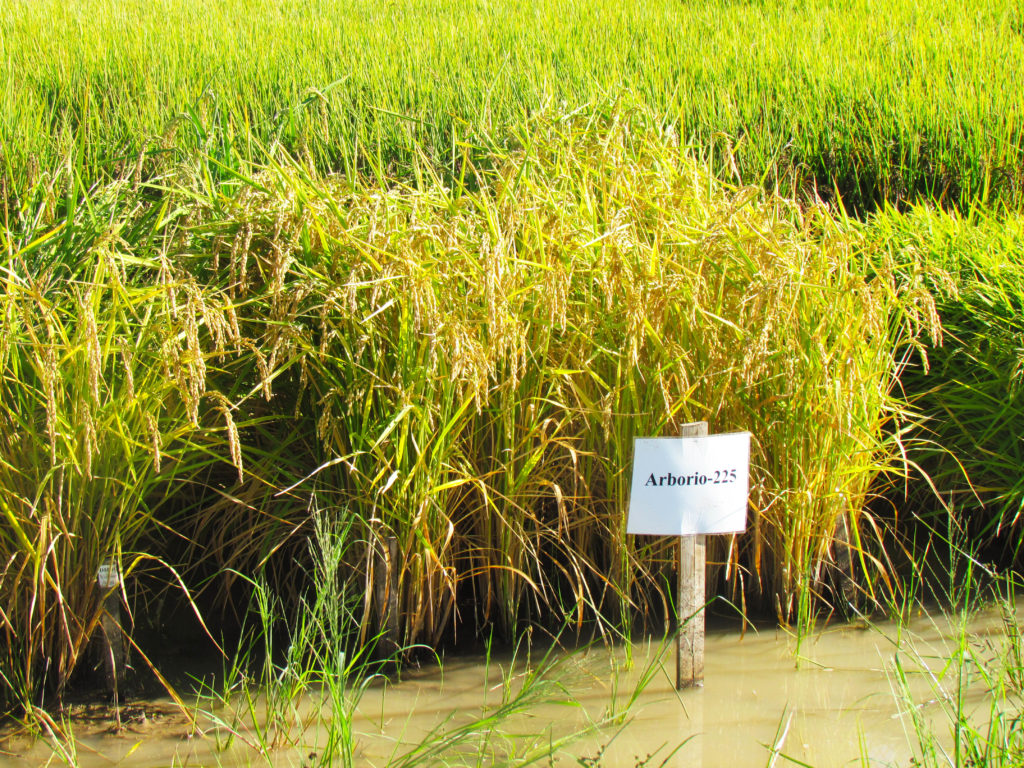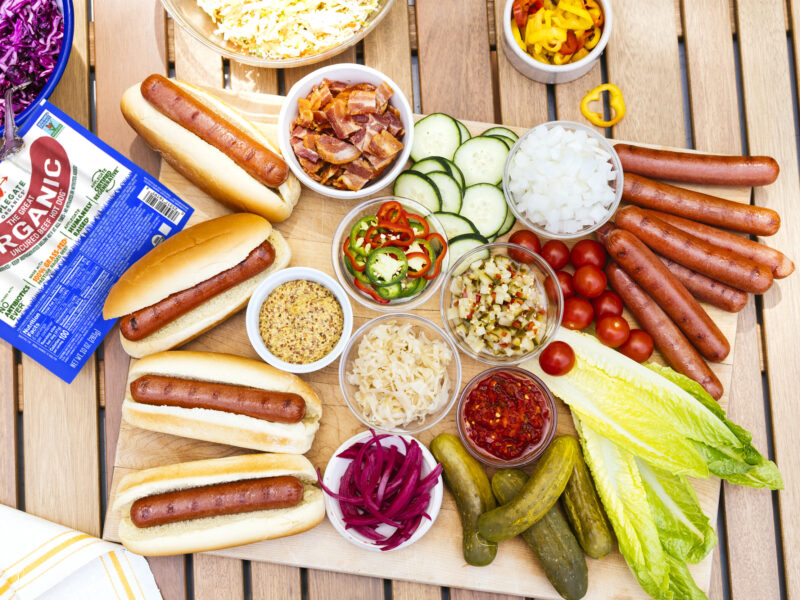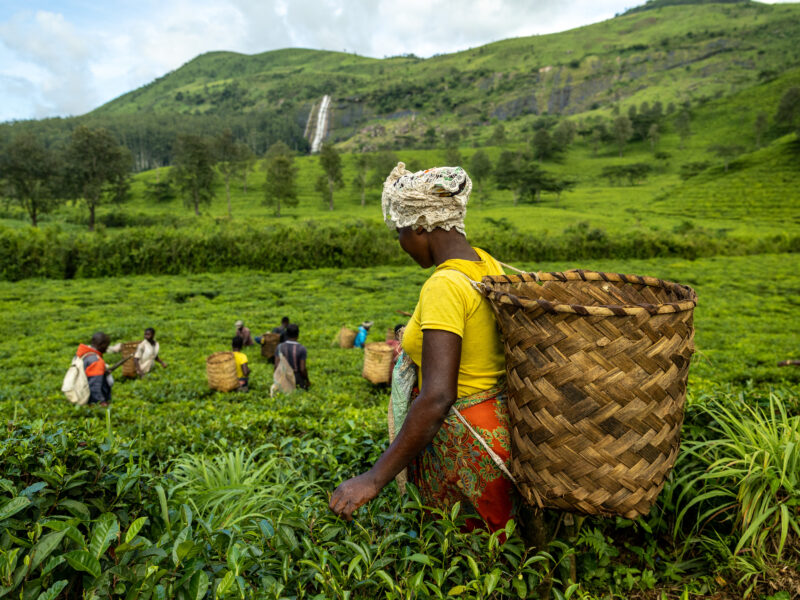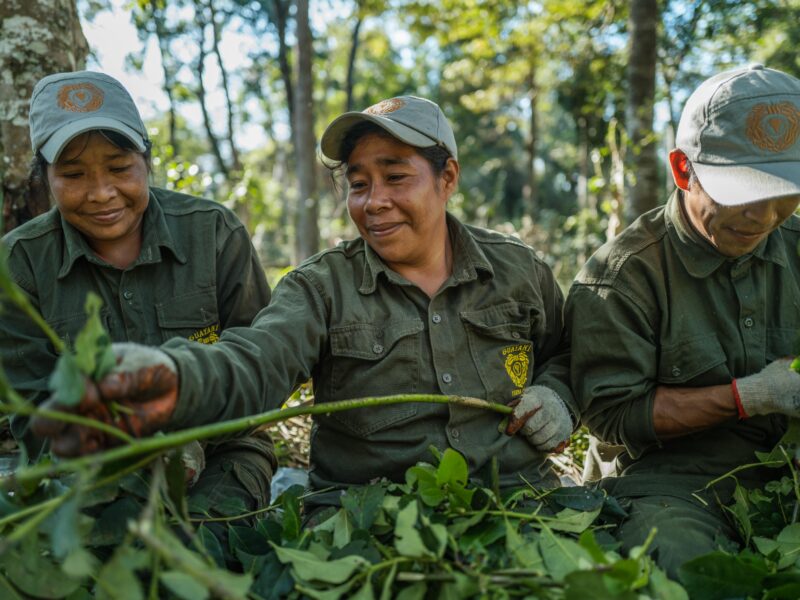Only Organic is interviewing organic farmers across the U.S. to highlight the wonderful work they do. This interview was conducted by Only Organic in partnership with Lundberg Family Farms.

Farmer Name: Bryce Lundberg
Farm: Lundberg Family Farms
Location: Richvale, CA
- Why did you choose to become an organic farmer?
Becoming an organic farmer was pretty natural for me. My parents, Harlan and Carolyn, were one of the founding families of Lundberg Family Farms and pioneers of organic rice production. “If you want to learn how to farm,” they told me, “we’ll teach you, but why don’t you pursue something else first?” So I studied Political Science at UC Davis and thought I might become an attorney. But as time went on, I realized how special it is to be able to work with my family and carry on our legacy. So a couple of years after graduating from college, I began farming rice with my brother, Eric. We’ve been farming together ever since and now we have the privilege of sharing knowledge cultivated through more than 80 years of family farming with our children, who are poised to start farming organically on their own. I have also worked in operations, sales, and organic certification at Lundberg Family Farms, where I currently serve as Vice President of Agriculture and help manage 15,000 acres of certified organic rice and quinoa grown by Lundberg Family Farms and a network of 40 growers.
- How long has your farm been certified organic?
My family started farming organically in 1969. My Uncle Homer helped start California Certified Organic Farmers (CCOF), so Lundberg Family Farms was the second farm to be certified in the north valley region. When my brother and I started farming together in 1985, the land we managed was owned by the Harter family, who were also organic pioneers and some of the first members of CCOF. So the ground was already certified organic. However, we’ve expanded since then and, all told, my family’s farms have been certified organic for more than 30 years.
- Was it difficult to become certified organic?
It wasn’t difficult for our family to become certified organic, but it took a while. In the early days of organic—in the seventies and eighties—CCOF certification required two inspections a year apart. So when you wanted to add organic land to your farm, it took more than a year to complete certification so CCOF could validate organic practices for an entire season. The hardest part of the process was waiting.
- What variety of crops do you grow?
At Lundberg Family Farms, our primary crop is rice and we grow seventeen varieties including long, medium, short, basmati, jasmine, arborio, black, red, wild, and several varieties of sushi rice. We also work with farmers in Humboldt County to grow organic quinoa domestically.
- How do you build and support healthy soil at your farm?
Our farming practices are informed by the experiences of my dad, uncles, and grandpa, who saw how the Dust Bowl stripped the land of its topsoil in the 1930s. They decided to do things differently when they moved to California. Today, we cultivate rice from the ground up, using eco-positive farming methods to build soil health. During the winter months, we grow cover crops like oats, vetch, and fava beans. These nutrient-capturing plants are an important part of soil health. Come March, when we turn them into the ground, they promote fertility by providing the soil with essential nutrients. Adding compost is another way of feeding the living thing we call soil. Together, we like to think of straw, cover crops, and compost as part of the soil’s well-balanced diet.
- How do you curb pests and manage weeds on your farm?
We manage weeds naturally, with water. At the beginning of the season, we fill our fields to about five inches. A few weeks after planting, we raise the water level just high enough to kill grass weeds but not so high that it kills the rice. It requires careful and, sometimes, near-constant observation as rice can only survive under water for about 48 hours longer than grass weeds. That’s our window to make sure rice survives while grass weeds drown. Then we remove the water and dry up the fields to kill aquatic weeds. It’s a system my dad and uncles developed as they prepared to give up on a field that had been overrun with aquatic weeds. “Let’s see how long we can let the rice dry up,” they said. Decades later, it’s our best defense against aquatic weeds!
- What is the biggest challenge you face as an organic farmer?
We are fortunate to grow rice in a climate that is semi-arid, which means it doesn’t rain a lot during the summer and it’s not very humid. We don’t have to worry about disease or insects as much as we would elsewhere, so our biggest challenge is managing weeds.
- What’s the one thing you wish all consumers knew about organic food and farming?
I wish consumers understood how fundamentally different organic is from conventional. When consumers buy food that’s grown organically, they’re not only saying no to chemicals and GMOs, they’re saying yes to soil health and biodiversity, which are components of the organic system.
- What advice would you give a younger generation of farmers that may be interested in becoming organic?
Try it! Why not transition a portion of your farm to organic? Get comfortable and then go for it! Organic farming may require you to be out in the fields more often, to scout and get creative. But if you ask me, organic is the future of farming because it puts the planet first—protecting our food, soil, air, water, and wildlife so we can keep growing together for generations to come.
Watch this great video of Anders here.
Social media channels
Instagram: @lundbergfarms
Facebook: @lundbergfamilyfarms
Twitter: @lundbergfarms
Pinterest: @lundbergfarms









